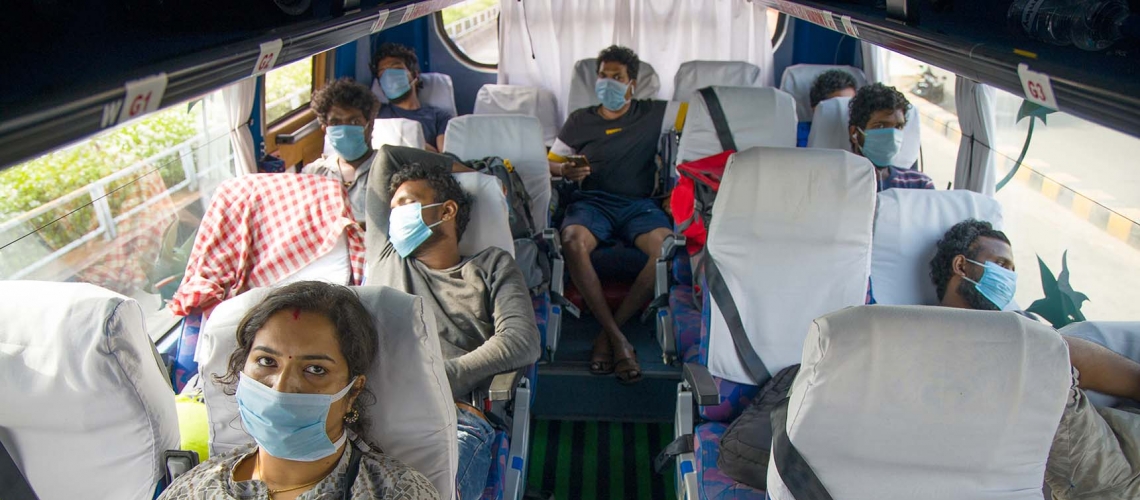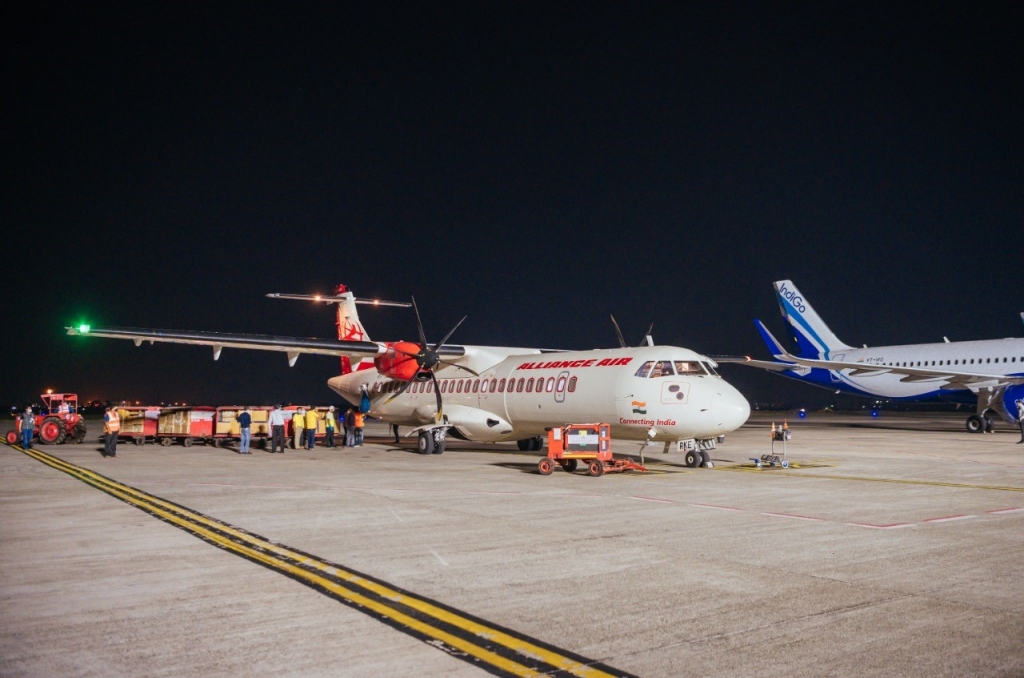How Indian State of Odisha is using efficient procurement to combat COVID-19

People were traveling by bus guarding safe distance, and mask in the Indian state of Odisha.
COVID-19 has impacted almost all countries around the globe including India, which at the end of July 2020 had the world’s third-highest number of documented cases. As the pandemic continues to evolve, the medicines and treatment protocols required are constantly changing. This is compounded by the disruptions in the supply chain, posing enormous challenges for the procurement of essential supplies.
While the timely acquisition of adequate supplies is paramount, quality and affordability are also important. In the Indian state of Odisha, with an estimated population of over 41 million, the Odisha State Medical Corporation Ltd (OSMCL), a state government enterprise, is making the necessary supplies available to the state’s vast healthcare network.
OSMCL is responsible for the timely procurement of quality medicines, surgical, and other medical equipment through a fair, transparent, and competitive bidding process. It normally uses long-term (rate) contracts, open tenders using e-procurement, and the Government e-Marketplace (GeM). If large quantities are required, orders are split among multiple vendors, provided they match the lowest price. Certain items are reserved for procurement from micro, small and medium vendors. OSCML also manages 39 drug warehouses across 30 districts and the Central Drug Store (CDS) located in the state capital. A well-defined quality assurance mechanism is also followed, under which the drugs and medical supplies procured are quarantined in a warehouse and distributed only after sample testing is completed.
During the pandemic, however, a different approach was required to procure essential medical supplies. To facilitate emergency procurement, the state finance department issued an authorization on March 26, 2020, which was followed by a constitution of an emergency procurement committee at the Government of Odisha’s Department of Health and Family Welfare.
During a pandemic, requests for medical supplies are characterized by unpredictability in terms of quantity, frequency, and technical specifications. Special inter-departmental committees were, therefore, created to finalize purchase indents, audit documents, track the movement of materials, and authorize different processes. For example, instead of standard advertised open tenders, more aggressive approaches were followed, such as single sourcing (with or without tender inquiry), off-the-shelf purchases, an extension of existing rate contracts, renewal of expired rate contracts, and selecting multiple suppliers at multiple rates for the same item after fixing a ceiling price. OSMCL was also granted full financial powers. To attract vendors (as demand is more than supply during a pandemic), OSMCL offered special incentives for faster supply by ensuring payment within 24 hours of delivery, bearing transportation costs and testing charges, waiving penalty clauses on delayed supplies, lifting stocks from the open market, etc.
The high-level committee of government officials and OSMCL leaders met whenever needed to finalize procurement decisions as quickly and efficiently as possible. Making sure that medical supplies and equipment reached overstretched hospitals was a matter of life and death. Despite the need for expediency, OSMCL did not compromise on proper protocols and kept auditable document trails to ensure accountability. All committee decisions were subsequently ratified by the Empowered Group of Ministers to add another layer of oversight. As a result of these measures, OSMCL has been able to procure adequate quantities of essential supplies like ICU ventilators and beds, masks and PPEs, disinfectants, oxygen cylinders, essential drugs, testing kits, and consumables.

Airport personnel unloads an airplane with medical supplies to combat COVID-19 in the Indian State of Odisha. Copyrights OSMCL.
Due to the closure of OSMCL testing labs during the lockdown, the capacity of the State Drugs Testing and Research Laboratory was enhanced to test samples efficiently without compromising quality. Special Air Cargo Operations were also conducted to accelerate the delivery of critical items. For patient testing, OSMCL provided logistical support for setting up facilities in all medical colleges as well as district hospitals with testing machines and test kits.
OSMCL is also likely to handle procurement under the World Bank financed India COVID-19 Emergency Response and Health Systems Preparedness Project through India’s National Health Mission.
Although COVID-19 infections continue to grow in India, OSMCL’s swift and decisive actions have helped Odisha stock a five-month supply of all essential drugs and equipment, with orders in place for a further four-month supply .
OSMCL’s model as a health procurement agency and its approach towards procurement and supply management during the COVID-19 emergency is worth emulating by other Indian states. Its rapid emergency procurement can also be replicated by many other countries fighting to contain the pandemic.
